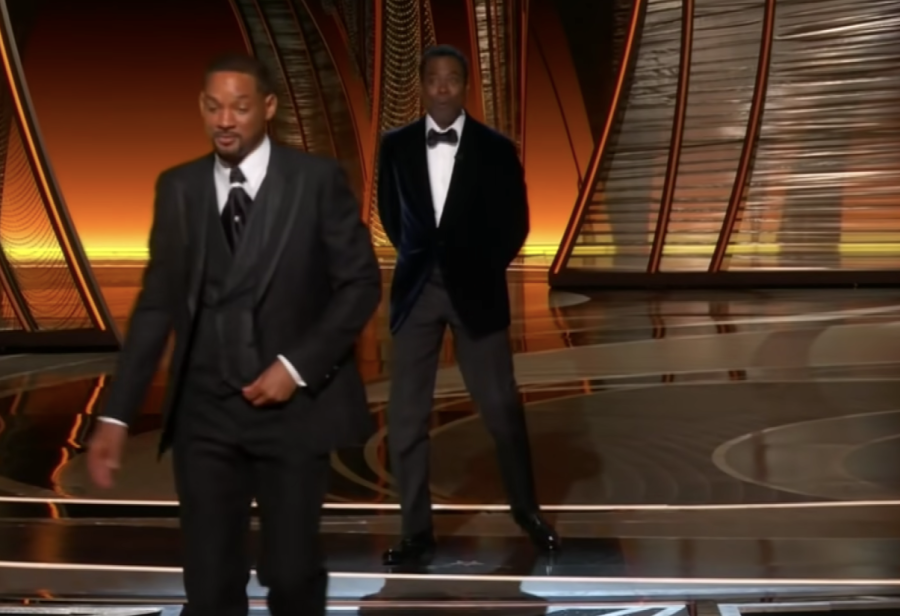Just For Laughs
“Why did the chicken cross the road?”
“To get to the other side.”
The classic and iconic chicken joke with an absolute knee-slapper of a punchline probably represents the epitome of humor. But what if we tell a joke about climate change? Gun control? Immigrants? Sexism? Racism? Would we still laugh as hard? It depends on what we are addressing and how we are telling it.
With the amount of polarization occurring in the world today, largely facilitated by social media, tensions are rising among the people. What better way to relieve some of that tension with some humor. However, the lines between comedy and being downright offensive are becoming more distinct, but who gets to decide that?
Bob Golub has been a comedian and entertained countless crowds for over four decades. With his career beginning in stand-up, Golub has performed in places from clubs to prisons. He says, “Right now, it’s so divisive. It’s the worst I’ve ever seen in my career of 42 years. I’ve never seen so many people go into corners. You could easily offend anyone. If you talk about politics, you lose 50% of the audience sometimes.”
Comedians have to find a way to get the attention of the people and ultimately, do their job: make them laugh. But with such a critical crowd, how is one guaranteed success? Golub says, “If you don’t take control right away, you lose ‘em. When you work at clubs, different people come in. But if you work in a specific place, […] then you gear the material. Or sometimes they hire you to roast people or center it around that person.”
In this day and age, more comedians are coming under fire for harmful jokes and comments that perpetuate damaging stereotypes to society. Social media allows for worldwide connections, meaning full blown arguments in comment sections of “funny” Instagram posts and the increased ability to hold others accountable for past actions because things on the Internet never truly disappear.
There is clearly a shift in attitudes regarding comedy, but what affects the laugh factor if we place our biases in judging humor. If we consider gender, race, sexuality, and other circumstances, are we more inclined to throw tomatoes rather than roses?
Ms. Harkins, Notre Dame’s Television Production & Film Production Teacher, facilitates NDTV which includes a humor segment for the community to enjoy every Friday. She says, “Everybody’s humor is different. When I started the humor was really raunchy. It was way over the top. I think now kids are being more sensitive to others, which is great. But sometimes kids have no idea, and they are oblivious to it.”
Deciding what gets aired is a job that requires a lot of responsibility as well as social awareness. Ms. Harkins says, “That’s like a big part of this job; it’s trying to figure out what could be offensive and trying to be mindful of kids of different races and genders. On top of that you have to think about the teachers or admin. You have to know if you crossed the line.”
It is inevitable that as time passes, the type of humor that resonates with generations changes with it. In addition, things are constantly happening in the world which shift attention to new and old problems. These shifting circumstances continuously affect people. “I try to really stay on the trends of what people are talking about and social media. I try to listen to what kids are saying,” Ms. Harkins says.
NDTV is a student-run television production, with everything filmed and beforehand, proposed by the students, so it is crucial that they have a central opinion. When reviewing the film and deciding the cuts for the show, students will also voice their opinions. Ms. Harkins says, “Sometimes kids will say ‘that joke won’t go over well.’ We always have to be on our p’s and q’s because we don’t want to offend anyone. Sometimes we do a great show and we don’t offend anybody here, but I’ll have a whole set of parents who just watched the show who now feel a whole different way. You have a lot of people that come into play.”
With humor, one can’t always please the entire crowd. But what exactly do we find funny?
Philosophers Aristotle and Plato suggest that humans find others’ misfortunes are comical. When scrolling through Tiktok or Vine (if you remember that brief era), you can see a plethora of cringe compilations, whether it be skating fails or cheeky kids making messes. Comedians John Mulaney and Jim Gaffigan are masters of self-deprecation, crafting segments about their hilarious shortcomings to make crowds giggle with glee.
Freud observes that humor alleviates tension or allows one to “let the intrusive thoughts win.” His theory explains why taboo subjects are often the basis of many jokes. Scandy punchlines and innuendos permeate pop-culture in obvious or not so obvious ways. Proof of such lies in recommended YouTube videos and BuzzFeed listicles headlining “10 Adult Jokes You Missed In Your Favorite Childhood Movie.”
Bob Golub says, “If you really, honestly are a true artist, a real comic, it’s not just that you do jokes. You talk about life and stories and make it funny.”
Humor is an effective way to raise awareness, push boundaries, and make a point. However, humor can be insensitive, rude, and completely offensive in the disregard of others. At this time, it seems that sensitivity and social awareness are the most valued things a comedian or anyone making a joke can and should have.

